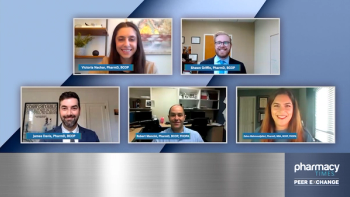
Pharmacists discuss challenges in transitioning myelofibrosis patients between inpatient and outpatient care settings, emphasizing medication reconciliation and seamless inter-team communication.

Pharmacists discuss challenges in transitioning myelofibrosis patients between inpatient and outpatient care settings, emphasizing medication reconciliation and seamless inter-team communication.

James Davis, PharmD, BCOP, discusses momelotinib usage and highlights emerging therapies revolutionizing myelofibrosis treatment paradigms.
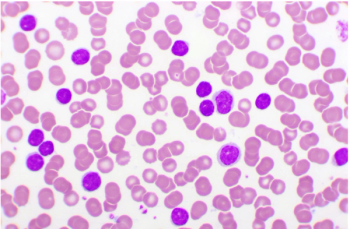
The pharmacist can assist with managing drug interactions, patient education, therapy selection, physician education, and more.

Experts explore early outcomes and patient candidacy factors for bispecific antibody therapy in diffuse large B-cell lymphoma (DLBCL) and discuss responses, real-world evidence, trends in patient outcomes, and selection biases.

A panel delves into pivotal clinical trials leading to therapies approved for diffuse large B-cell lymphoma (DLBCL) and provide insights on trial design, patient cohorts, response rates, duration, and toxicity profiles highlight efficacy nuances.

Nearly 75% of patients who had an initial complete response with mosunetuzumab maintained that complete response after 3 years.
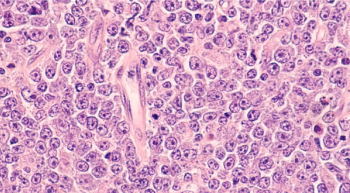
New CAR T development method infuses immune T cells from healthy people into patients to improve outcomes.

Pharmacists analyze the role of momelotinib in treating anemia in myelofibrosis, exploring its place in practice and impact on patient care amid emerging therapies.

Pharmacists discuss the impact and alternatives amid red blood cell shortages in myelofibrosis treatment, highlighting challenges, patient outcomes, quality of life issues, and health care cost implications.
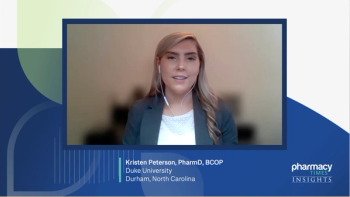
Kristen Peterson, PharmD, BCOP, reviews how pharmacists collaborate with health care teams to optimize patient care through treatment insight, coordination, and adverse effects management, in addition to ensuring medication accessibility for better outcomes.

In the Augment-101 phase 2 study, 63% of patients experienced overall response rate with revumenib.
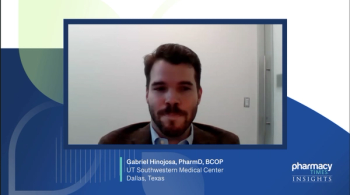
Gabriel Hinojosa, PharmD, BCOP, analyzes eligibility factors and treatment shifts in multiple myeloma care, in addition to discussing autologous stem cell transplant risks and evolving therapy approaches with daratumumab.

Experts discuss FDA-approved therapies for DLBCL (diffuse large B cell lymphoma) treatment, including formulations, efficacy profiles, administration impact, patient preferences, and institutional implications.

Experts discuss the ramifications of red blood cell transfusion shortages on myelofibrosis patient management and delve into the scarcity’s effects, patient prioritization, and the struggle for consistency in care amid supply challenges.

The biosimilars landscape is set to witness significant growth, particularly in therapeutic areas like ophthalmology and immunology, with a focus on blockbuster biologics like Humira, Stelara, and Eylea.
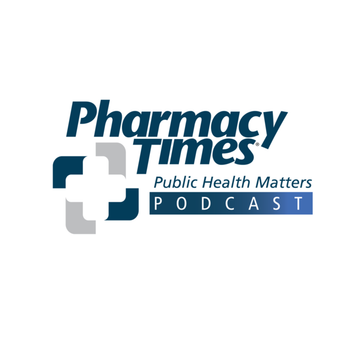
Public Health Pharmacist discussed a captivating exploration of global public health through the lens of a pharmacist and traveler.

Kristen Peterson, PharmD, BCOP, reviews how pharmacists navigate multiple myeloma treatments, from initial diagnosis to managing adverse effects, supporting patients, ensuring medication access, and handling evolving roles in prolonged patient care.

Zahra Mahmoudjafari, PharmD, MBA, BCOP, FHOPA, and a panel of pharmacists explore pharmacist roles in myelofibrosis care, treatment challenges, patient outcomes, and pharmacist responsibilities within interdisciplinary teams.

Investigators will evaluate prophylactic tocilizumab prior to treatment with teclistamab.

Fran Gregory, PharmD, MBA, vice president of emerging therapies at Cardinal Health, discusses the dynamic landscape of the biosimilars market, providing key insights into its current status and future projections.

Using information from clinical studies and her experiences working in the field, Stephanie Kirk describes treatment options that are on the horizon, and how removing stigma is key in HIV care.

Robert Mancini, PharmD, discusses current DLBCL (diffuse large B cell lymphoma) management approaches, relapse rates, frontline, and subsequent therapies, including emerging treatments like bispecific T-cell engagers and monoclonal antibodies.

Douglas Warner, MD, chief medical officer at eFFECTOR, provides a comprehensive overview of zotatifin and its current status in a Phase 1/2 dose escalation and expansion study, with a focus on ER+/HER2- breast cancer.

Feldman, who previously had C. diff, urges individuals to begin having conversations to help remove the stigma of the disease and raise awareness of its prevalence.

Feldman details her experience with C. diff, how the COVID-19 pandemic slowed the timeline of care, and how her surgical history and the use of antibiotics played into the disease’s onset.

Heather McArthur, MD, clinical director of breast oncology at UT Southwestern Medical Center, discusses the toxicities associated with antibody-drug conjugates (ADCs) used in breast cancer treatment at the 2023 San Antonio Breast Cancer Symposium.
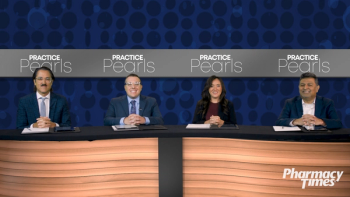
A panel of experts explore the evolving role of specialty pharmacists in hemophilia care, including gene therapy, adherence strategies, and the transformative impact on patients' lives.

Lisa Schrade, PharmD, and Robert Sidonio Jr, MD, MSc, explore hemophilia A adherence and how specialty pharmacists can empower patients to take control of their healthcare through proactive engagement, personalized routines, and switching strategies when necessary.

There is progress being made regarding research on immunotherapies and the mutation, which adversely affects a higher number of patients in this population.

Christina Madison, PharmD, FCCP, AAHIVP, sat down with Noha Aboelata, MD to discuss her journey opening clinics and importance of health equity.